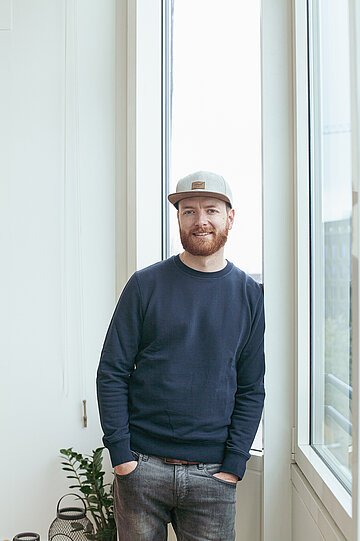Compulsory reusability is coming - good for the environment, but a challenge for the industry. Under the motto #alltogether, INTERNORGA as a platform for the out-of-home market provides orientation and devotes a lot of space to the area of packaging & delivery. Today, however, we are already taking a look at the topic and have spoken to an expert. Fabian Eckert, founder and managing director of ReCup, explains what needs to be considered during implementation and what is new in the area of packaging.
What does the mandatory reusability from 2023 mean for restaurateurs?
With the reusability obligation, an effective measure against the mountains of packaging waste generated every day by the to-go and take-away business will come into force on 1 January 2023. The measure obliges all catering establishments with a sales area of 80 sqm or more or with more than 5 employees to offer their clientele a reusable, returnable container as an alternative to single-use packaging for takeaway and ordering food and drinks. This is an opportunity for hosts to commit to more environmental protection on the one hand and to save costs on the other. In the long run, using a reusable system such as RECUP/REBOWL is cheaper than one-way because fewer disposable products have to be bought that end up in the rubbish again within minutes of use. So reusable is not only worthwhile for the environment, but also financially - and the compulsory reusable system helps to spread and implement the whole thing nationwide.
How can deposit reusable systems help to implement the obligation?
The idea of a deposit is well-known and familiar in Germany - the example of the bottle deposit shows how easily and comprehensively such a concept works. There is no need for an app or to provide personal data. The system does not have to be explained to anyone new - which saves restaurateurs time - and it can be easily integrated into everyday operations. A deposit system is therefore an uncomplicated and effective solution for implementing the reusable packaging obligation and reducing disposable packaging.
What new products/innovations are there in the area of packaging that ensure more sustainability?
Delivery services play a major role in out-of-home sales for restaurants. The delivery market has been growing globally for years, but also in Germany. We are therefore working with the most important platforms (Lieferando, Uber Eats, Wolt) to offer a reusable alternative in the online context and to reduce disposables here as well. We are therefore evaluating various concepts of a digital reusable system with the aim of eliminating the need for cash transactions between restaurateurs and customers. In doing so, we always have their needs in mind and try to create as simple a supplement to our current deposit system as possible.
In addition, we are continuously looking at which products and services can expand our deposit system so that as many usage situations as possible are covered and reusable becomes the standard solution for many end consumers and restaurateurs.

